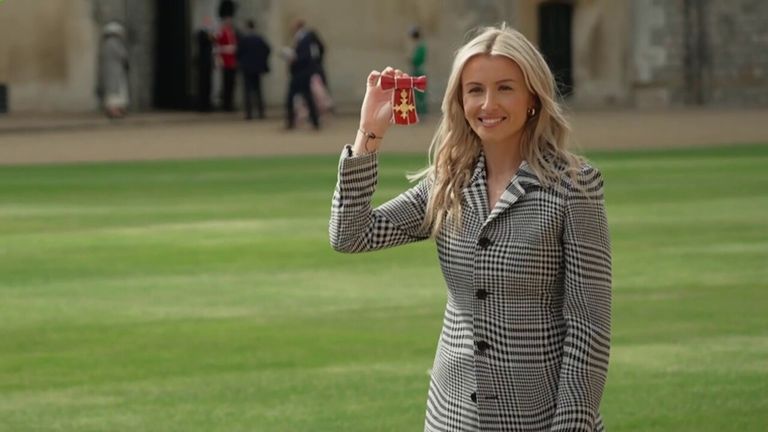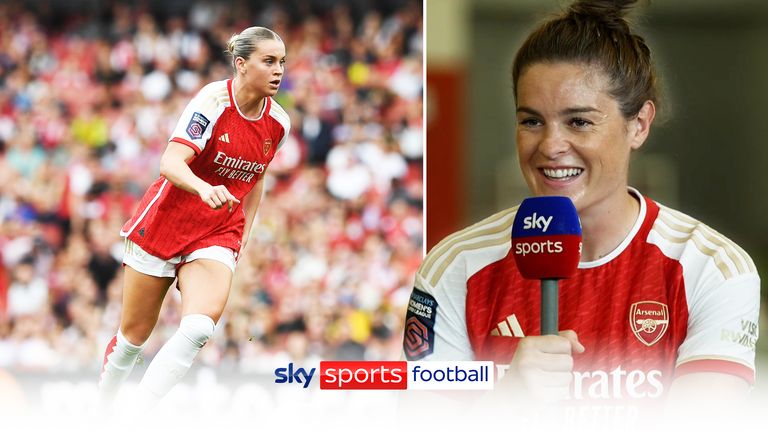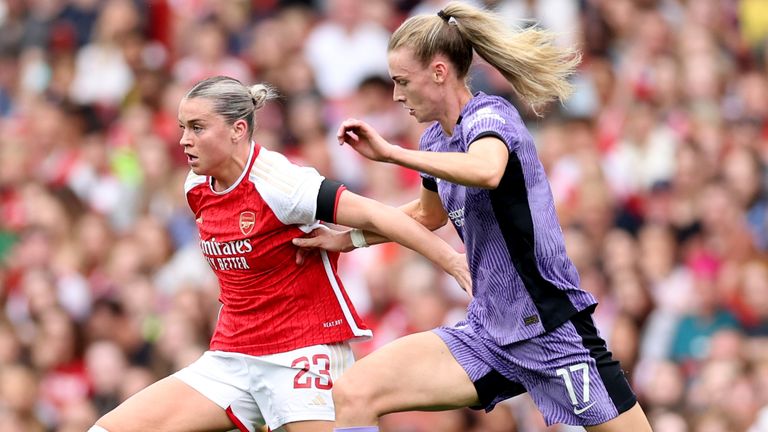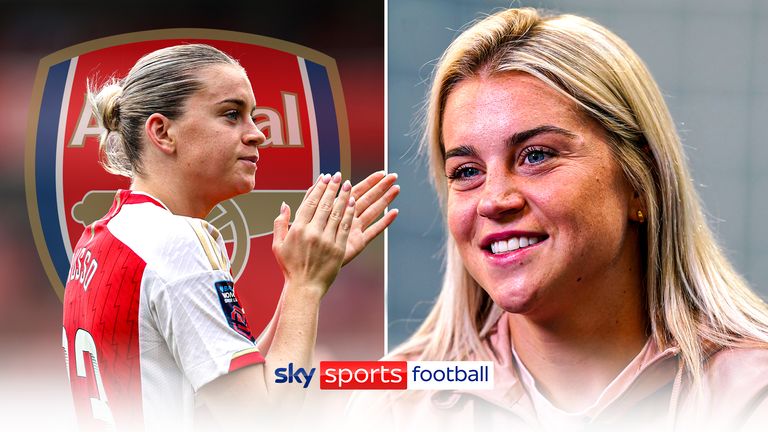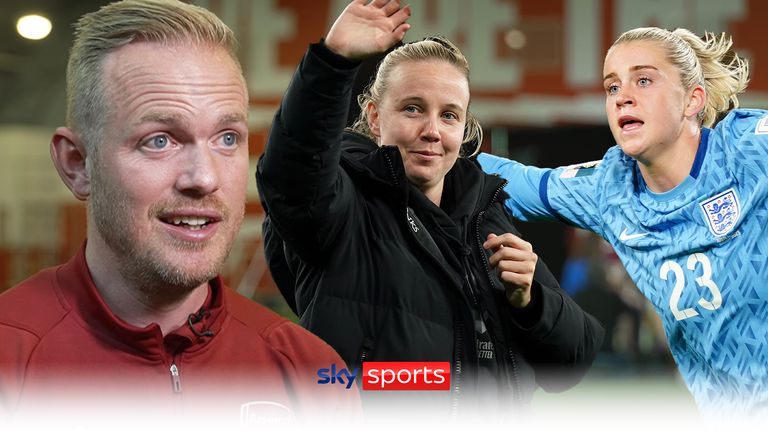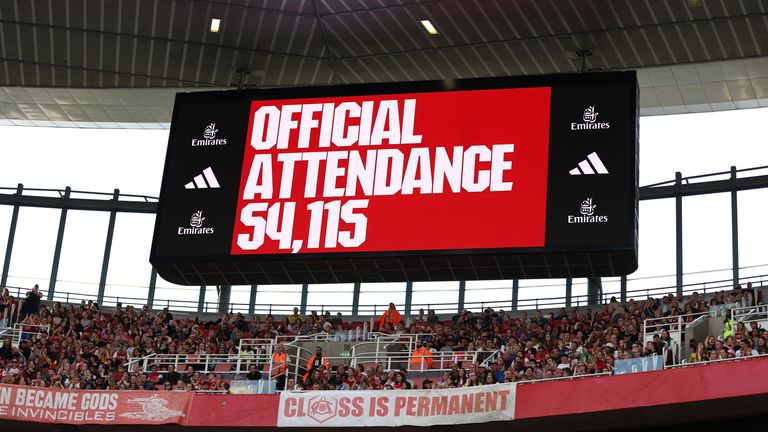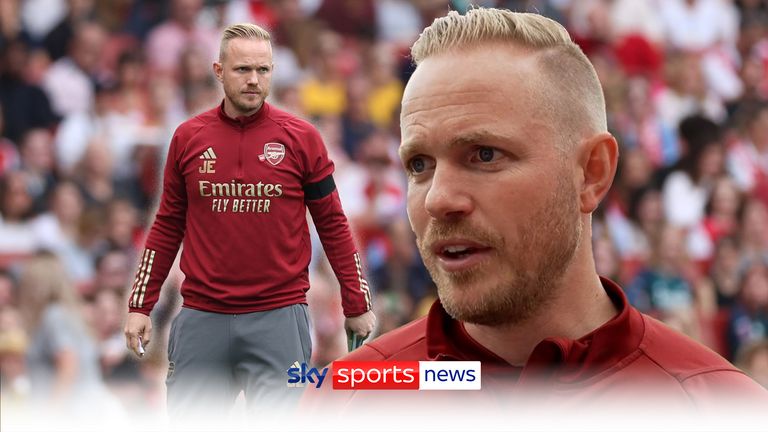[ad_1]
Arsenal have always led by example. They are the gold standard in terms of how a Women’s Super League club, circa 2023, should be run. Bold, brave, progressive, and unafraid.
They don’t want to stand in shadows, they want to be at the forefront of the women’s football revolution; hosting showpiece games at the club’s main stadia and smashing attendance records by playing attractive and authentic football.
They want the best and most influential talent – players who can compete and challenge on the pitch, but also confront and tackle issues of importance off it.
If this were a tick-box exercise Arsenal would have close to a perfect score, albeit without the silverware to match. Historically, the Gunners are English football’s most successful women’s side (and the only club to have conquered Europe), but they’ve since surrendered their crown to Chelsea, who have dominated in recent years.
Chelsea’s infrastructure is less advanced, but they have retained a monopoly over domestic silverware since 2015, winning seven of nine WSL titles during that period. In fact, Emma Hayes’ reign will be considered one of the finest ever to grace the game – male or female.
Back to Arsenal, who have just tied manager Jonas Eidevall down to a new deal, and there is a need for clarity in their cause. If the Gunners were able to couple their ability to attract record-breaking crowds, market-leading commercial sponsors, and some of the game’s best new talent with consistent results – and trophies – they really would be a force.
Indeed, Arsenal enjoyed a particularly promising summer of recruitment. Five world-class players were added, including the much sought-after Alessia Russo, who had her pick of clubs from all top European leagues (as well as offers from the US) and chose to commit to Arsenal.
Russo’s transfer was championed in the same way as Arsenal men’s marquee signing Declan Rice two weeks later, in fact Russo even featured in Rice’s online reveal video. The cohesion is deliberate – Russo’s replica shirt was placed side by side with Rice’s in Arsenal’s club shop, and given equal prominence.
If you take a glance at the Emirates Stadium facade it’s covered with female stars, past and present. Players are positioned broad and beaming, alongside their male counterparts. As a club they are making all the right noises, which places even greater importance on the football stacking up.
Perhaps there is a disconnect between what Arsenal have achieved away from the pitch, and their performance on it. An imbalance that must be addressed.
The summer has helped. In many cases, Arsenal struck while the iron was hot, and it’s made for a much-needed squad spruce-up – a more rounded team, with depth, capable of mounting a bid for silverware on multiple fronts.
Russo was supplemented by Swedish defender Amanda Ilestedt, who scored four goals at the World Cup (one behind the Golden Boot winner Hinata Miyazawa), World Cup winner Laia Codina, Canada striker Cloe Lacasse and Australia midfielder Kyra Cooney-Cross. Pedigree in spades.
They also have – and this was a mitigating circumstance for last season’s underachievement – Beth Mead, Viv Miedema and Williamson to return from long-term injuries. Players will need time to adapt to the demands and the schedule but it’s a remarkably well-balanced contingent.
No longer can Eidevall (presuming most of his side stay fit) attach a lack of resource to underperformance. The Swede has been backed with exciting new players as well as an improved contract, and you can be sure the return will need to supersede the one trophy he’s managed to acquire thus far – the Conti Cup.
Contextually, it’s important to note that Arsenal were on the verge of something impressive last term. They teetered on the edge of the Champions League final before dreams were dashed by the boot of Wolfsburg’s Pauline Bremer in the 119th minute of an occasion watched by over 60,000 inside the Emirates in early May.
Arsenal know how to whip up a stir at the Emirates. They do it better than any other WSL club – players are like their marching band, a mini set of influencers that each draw their own following. Attendance records topple when the Gunners play host and it’s usually only their own record they are breaking.
Translating that into chasing titles, however, is proving somewhat more difficult. The next phase of this Arsenal renaissance then, one that can be felt across the entire club, is regular silverware. Only then can this era be defined as a complete success.
Disappointments of old, including last week’s Liverpool reverse which was watched by over 54,000 people inside the Emirates (a new WSL record), need to be discarded. The fact that Arsenal have already given up their place in this season’s European competition, beaten in qualifying by Paris FC, also needs to be forgotten.
The silver lining, of course, is a more favourable schedule. The last time Arsenal failed to qualify for the Champions League in 2019 they won the WSL. They’d happily take that trade-off this time around, but the proof of the pudding is in the eating.
Arsenal’s courage to be trendsetters is commendable, but now the football needs to marry up.
Watch Man United vs Arsenal live on Sky Sports Premier League from 7pm on Friday; kick-off 7.30pm
[ad_2]
Source link
